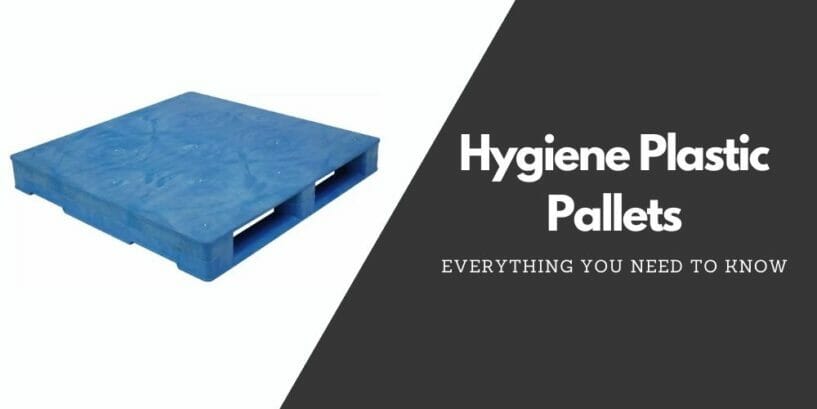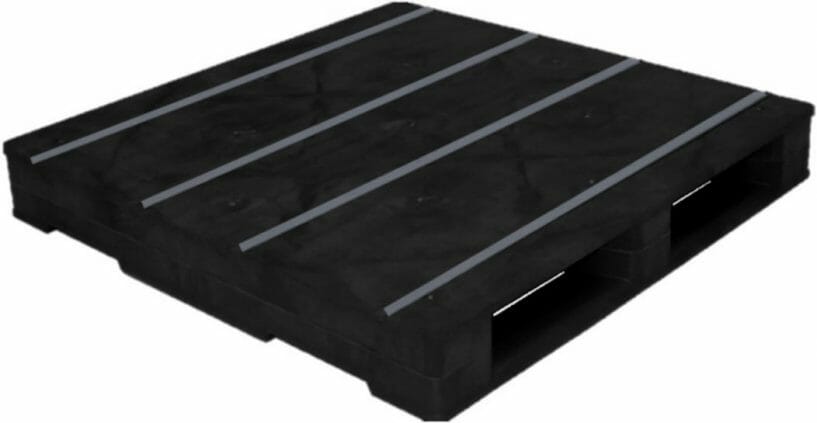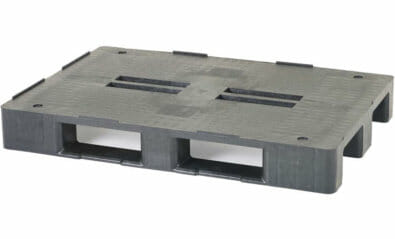
Plastic pallets offer a multitude of uses and applications. A wide range of options is available when it comes to plastic pallets. They are extremely suitable for the storage and transport of diverse products. Therefore, it is important to take into account the type of plastic pallet and if it will carry the load of the products.
Hygiene plastic pallets and what they’re used for
Hygiene plastic pallets are ideal for transporting chemicals, fresh produce, pharmaceuticals, food, beverages, and medicines. Why? Because they protect the products from fungi, pests, and bacteria.
Sanitation and cleanliness are timeless concerns in the pharmaceutical and food industries. All pharmaceutical, chemical, medicinal and food industries use hygiene plastic pallets to ensure that the product is protected from dust, grime, bacteria, fungi, and other environmental factors.
However, many manufacturers underestimate the benefits of hygienic plastic pallets.
Importance of using hygiene pallets
Contamination of any sort in the pallets can devastate the distribution of food, chemicals, pharmaceuticals, or beverages. However, hygiene plastic pallets save you from the loss of reputation and revenue.
Hygiene plastic pallets are non-porous and very easy to clean or sanitize. Moreover, there are a lot of options to choose from, for instance, open-deck and closed-deck pallets. Regardless of the size and type of shipment, there’s always a type of hygiene pallet that will fit your needs.
Features and Strengths of H1 and H3 pallets
Hygiene plastic pallets are also known as H1 and H3 pallets. H1 hygiene plastic pallets were developed to transport and store meat. They have standard outer dimensions of 120 by 100 cm and 120 by 80 cm. Therefore, they are considered perfectly stackable meat boxes.
H1 pallets are durable, robust, and lightweight. But the most important feature of the H1 pallet is that it is reusable. All thanks to the high-quality material of the plastic pallet, they won’t break if they hit each other or are jolted during transportation.
The high material quality of the hygiene plastic pallets lowers the transportation costs and increases the rotation figure.
As far as cleanliness is concerned, hygiene plastic pallets can be sanitized very easily. The pallets don’t absorb moisture, which keeps them safe from accumulating bacteria, fungi, and germs. As they are very resistant to cold and hot temperatures, they can be used for a variety of applications.
Closed-deck hygiene plastic pallets

Closed-deck or fully closed hygiene plastic pallets are ideal for transporting chemicals, food, and beverages because they don’t have crevices and gaps. Therefore, bacteria and germs are not able to trap within the pallets.
Moreover, they are the quickest and easiest to clean because there are no open cavities. Hence, any chemical or beverage spills are unable to accumulate and become a haven for bacteria and germs.
Closed-deck hygiene plastic pallets were originally developed from food-grade HDPE. This plastic material is also preferable throughout the food and pharmaceutical industry.
Today, hygiene pallets are also manufactured from food-grade PP.
Another fun fact about this material is that it is virgin plastic. Hence, there’s no recycled plastic in the composition of H1 and H3 pallets.
The durability of closed hygiene plastic pallets
Hygiene plastic pallets are developed from raw and new materials, making them comply with all FDA standards.
Closed-deck hygiene plastic pallets are created with injection mould. Therefore, the result is a one-piece plastic pallet with no screws and welds. Due to the injection mould, hygiene plastic pallets are extremely durable, strong, and resistant to powerful impacts during the transportation period.
The durability and resistivity of the closed-deck hygiene plastic pallets allow the suppliers to ship chemicals, food, pharmaceuticals, and medicines in ideal conditions.
Benefits of hygiene plastic pallets
All sorts of logistics and supply chain companies employ a pallet pooling system to eliminate constant allocating and procuring. Hygiene plastic pallets are a superior choice because they provide the most protection to the product from bacteria, fungi, germs, and dirt.
Here are some of the main advantages of using H1 pallets over other kinds:
Food safety and superior sanitation
 The majority of goods that are shipped rest on the pallets. If the pallet is contaminated with pests, bacteria, fungi, and germs, the product can get infected too.
The majority of goods that are shipped rest on the pallets. If the pallet is contaminated with pests, bacteria, fungi, and germs, the product can get infected too.
The hygienic plastic pallets are impervious to bacteria, germs, fungi, pests, and rodents. As there are no open decks or wood fibres for the bacteria to hide in, the sanitization is quick and easy.
Decreased contamination and damage to the goods
A loose nail or screw in a wooden pallet is a serious threat to fragile goods, such as medicines, pharmaceuticals, chemicals, and beverages. It can also damage the packaging and the quality of the products.
H1 pallets are originally developed from injection moulding, eliminating the use of screws, nails, and bolts in every way. Therefore, H1 pallets would not cause any splinters during the jolts of transportation.
Prevention of moisture build-up
Moisture is an old enemy in the cold chain transport. Water sitting in the pallets for too long can be bad for business. Although wooden pallets can withstand moisture for a long time, they attract bacteria and germs which then compromise the quality of the produce.
Hygiene plastic pallets, on the other hand, do not absorb water. They lack porosity and do not require chemical sanitization to remove bacteria, germs, and mould.
However, you can take extra care by choosing the hygiene plastic pallets with leg drain holes.
Resistance to chemicals
Harmful chemical spills could contaminate the whole batch. However, hygiene plastic pallets prevent cross-contamination and resist contaminants.
Resistance to temperature changes
Hygiene plastic pallets work well in temperature-controlled areas, whether the temperature is hot or cold. On the other hand, wooden pallets develop mould problems if they are left at room temperature after unloading cold beverages.
Consequently, hygienic plastic materials don’t change their composition and eliminate any susceptibilities to temperature vulnerabilities.
Conclusion
The above advantages give you more reason to use hygiene plastic pallets to manage and run your supply chain logistics. Pallets are used in every step of the process. Every change added to the supply chain operations to improve efficiency increases customer satisfaction and lowers transportation costs.